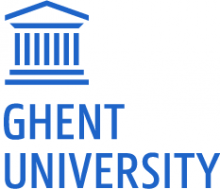
IDLab - Internet technology and data science lab
DLab performs fundamental and applied research on Internet Technologies and Data Science. Major research areas are Machine Learning and Data Mining; Semantic Intelligence; Distributed Intelligence for IoT; Cloud and Big Data Infrastructures; Multimedia Processing; Wireless and Fixed Networking; Electromagnetics, RF and high-speed Circuits and Systems. IDLab collaborates with many universities and research centres worldwide and jointly develops advanced technologies with industry (R&D centers from international companies, Flanders’ top innovating large companies and SMEs, as well as numerous high-tech start-ups).
For the Distributed Systems research cluster (IDLab-DS), which will take part in SMILE-IT, management of computing infrastructures and communications networks has long been an important research priority, with particular focus on autonomic management of computers, networks, services and clouds. This relatively new domain applies both traditional optimization algorithms, as well as (multi-agent) machine learning techniques to the management of distributed systems to reduce complexity for human network operators by automating certain management tasks. Specifically, IDLab-DS research has mainly focused on (1) the design of adaptive multimedia service management algorithms, based on linear and non-linear optimization theory, (2) scalable and automated filtering and aggregation techniques, based on semantic technologies, and (3) extensive expertise on prototype-based evaluation of network and service management protocols and algorithms, due to participation in EU FIRE initiative research projects (e.g., BonFIRE, FIREStation and Fed4FIRE).
IDLab-DS will contribute to the generic scientific requirements of SMILE-IT and takes a major role in adapting them to the telecommunications case study. IDLab main scientific focus is the development of fault detection and self-healing solutions for telecommunications networks. Solving these challenges is a major step towards automating the management of telecommunication networks. IDLab will also contribute to the development of automatic information filtering techniques that can be used in the communication abstractions. IDLab will take the lead in WP5, due to our long-term experience with experimentally driven research. IDLab will mostly focus on developing and evaluating prototypes for the telecommunications case study, but will also contribute to the miscellaneous case studies, including smart grids.